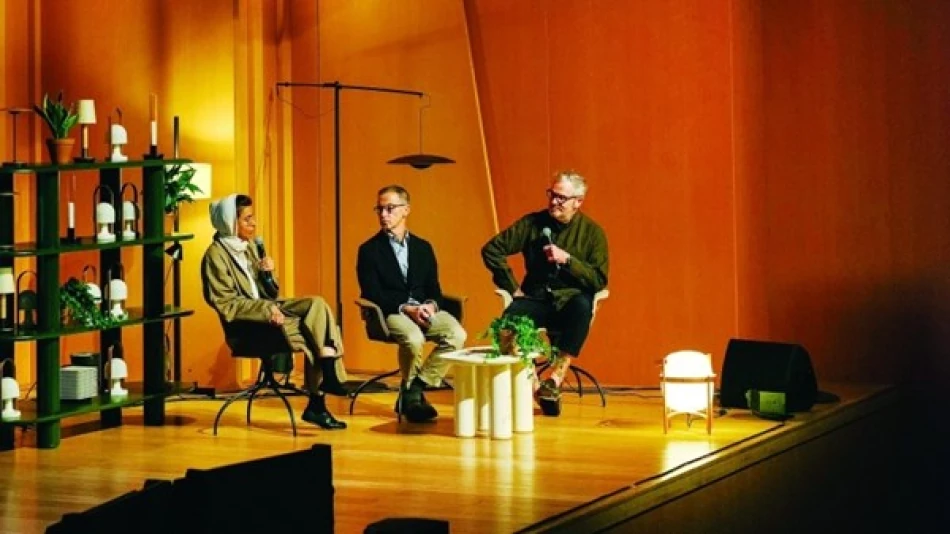
Embracing Openness, Coexistence, and Dialogue: UAE's Transformative Approach
UAE Positions Itself as Global Champion of Religious Tolerance and Cultural Diplomacy
The United Arab Emirates is leveraging high-profile international forums to cement its reputation as a bridge-builder between cultures and religions, with Minister of State Noura Al Kaabi highlighting the country's $50.4 million investment in UNESCO's "Revive the Spirit of Mosul" initiative at Barcelona's Monocle Quality of Life conference. The diplomatic push underscores how the UAE is using soft power and cultural investments to strengthen its global influence amid rising polarization worldwide.
Strategic Soft Power Investment
Al Kaabi's participation in the Barcelona conference alongside Monocle's editorial leadership represents more than ceremonial diplomacy. The UAE's substantial financial backing of the Mosul restoration project—aimed at rebuilding cultural heritage destroyed by ISIS—demonstrates how the country is positioning itself as a defender of shared human heritage rather than merely a regional power.
This approach mirrors successful soft power strategies employed by countries like Singapore and South Korea, which have used cultural initiatives to punch above their weight diplomatically. The UAE's investment in restoring Iraq's cultural sites serves dual purposes: supporting regional stability while showcasing Emirati values to international audiences.
The Abrahamic Family House Model
The minister spotlighted Abu Dhabi's Abrahamic Family House as a flagship example of the UAE's interfaith dialogue commitment. This architectural and symbolic project, housing a mosque, church, and synagogue on a single site, represents a tangible manifestation of tolerance that few other nations have attempted at such scale.
Beyond Symbolism
Unlike purely symbolic gestures, the Abrahamic Family House functions as an active center for religious exchange and education. This practical approach to tolerance-building offers a replicable model for other diverse societies grappling with religious tensions, potentially expanding UAE influence through policy emulation.
UN Security Council Influence
Al Kaabi's reference to the UAE's role in crafting UN Security Council Resolution 2686—focused on combating intolerance—reveals the country's growing appetite for multilateral leadership. This resolution work positions the UAE as more than a regional mediator, establishing it as a voice on global governance issues.
The timing is strategic. As traditional Western powers face domestic polarization challenges, the UAE presents itself as a stable alternative voice for international cooperation. This positioning could prove valuable in future diplomatic negotiations and international business relationships.
Economic Implications of Cultural Diplomacy
The UAE's tolerance-focused diplomacy serves clear economic interests. By establishing itself as a neutral, welcoming hub, the country attracts international businesses, tourists, and residents who might otherwise choose competing regional centers like Dubai's rivals in Qatar or Saudi Arabia.
This cultural openness strategy has already paid dividends in sectors from finance to technology, where international talent and capital flow toward jurisdictions perceived as stable and inclusive. The UAE's emphasis on dialogue and diversity helps differentiate it from neighbors pursuing more restrictive social policies.
Challenges to the Model
Despite these diplomatic successes, the UAE faces skepticism about the depth of its tolerance commitments. Critics point to restrictions on political expression and concerns about human rights as contradictions to its pluralistic messaging.
The key test will be whether the UAE can maintain its reputation for openness while navigating regional tensions and domestic pressures. Success in this balance could establish a new model for Middle Eastern diplomacy, while failure might expose the limitations of soft power approaches in addressing deeper structural challenges.
As global polarization intensifies, the UAE's bet on tolerance-based diplomacy represents both an opportunity and a risk—one that could reshape how smaller nations build international influence in an increasingly fragmented world.
Most Viewed News

 Layla Al Mansoori
Layla Al Mansoori






